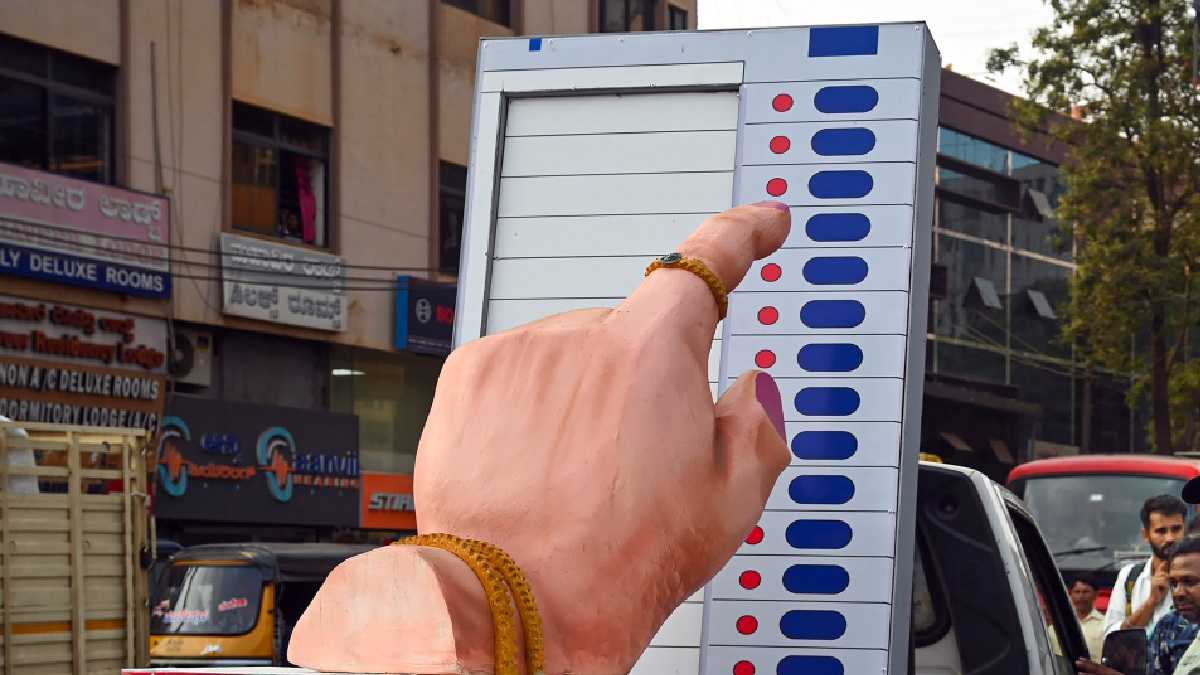FM hits out at BJP; hints more steps to curb inflation
New Delhi, Jun 6: Vowing that the government was willing to take further measures to bring down the inflation rate, Finance Minister P Chidambaram today took on the BJP for politicising the issue while offering no concrete suggestions to check the price rise and exuded confidence that price stability, robust and inclusive growth will be achieved in the medium to long term.
In a statement, Mr Chidambaram criticised the 'Resolution on Prices' adopted by the BJP National Executive, saying that it is an "exercise in self-deception and is aimed at spreading disinformation." "I would be the first to admit that we have not overcome all our problems. Notwithstanding the many successes under the UPA government, we admit that inflation is a problem. It was a problem under the BJP and NDA government too", he said.
Mr Chidambaram said the current inflation is almost entirely due to the relentless rise in crude oil prices. This rise has also triggered the increase in commodity prices and because bio-diesel is produced from food items such as maize, sugarcane and palm oil, food prices have also come under pressure.
"We have taken fiscal, monetary and administrative measures and we are willing to take more measures. But to criticise the government on the ground of inflation without going into the causes of the current inflation trends and without offering any concrete solution would amount to merely politicising the issue", he said.
In 2000-01, (when the NDA was in power), in 48 out of 52 weeks, the WPI was over six per cent; in 22 of those weeks, it was over seven per cent; and in 12 of those weeks, it was over eight per cent, Mr Chidambaram said.
"These are facts that cannot be wished away. During the entire six years rule of the BJP/ NDA, crude oil prices per barrel ranged from 2 dollars a barrel to 28 dollars a barrel. How I wish that the UPA government had enjoyed such benign crude oil prices. We have not been so fortunate", he said.
The Finance Minister contested the claim of the BJP that it inherited a bankrupt economy nor that it left one which was entirely robust.
"The legacy of the BJP/ NDA was not only a low growth rate. At the end of 1997-98, the fiscal deficit was 4.8 per cent and when the NDA left office after six years., the fiscal deficit was reduced marginally to 4.5 per cent. The revenue deficit at the end of 1997-98 was 3.6 per cent. Need anything more be said about BJP/NDA fiscal management?," he said.
Mr Chidambaram said when the UPA government took over, it had to overcome the legacy the NDA left behind. As the 2005-06 budget speech pointed out, there were a number of pressing problems that had to be tackled before the economy could take off again, like it did at the beginning of the nineties. The first was liquidity overhang at the end of 2003-04 which had spilled over into 2004-05. The second was the definite build-up of inflationary pressures as a result of a sharp rise in global petroleum prices. The third was an unanticipated 13 per cent deficiency in the south-west monsoon. The fourth was an apparent decline in business confidence that had led to a sharp downturn in new investment, and also showed up as current account surpluses.
Mr Chidambaram said in 2003-04, the NDA's last year, the economy registered a growth rate of 8.5 per cent. However, this was a statistical aberration and entirely due to the base effect of the low growth rate of 3.8 per cent in the previous year. The agriculture sector appeared to bounce to a growth rate of 10.0 per cent in 2003-04, but this, again, was only a statistical quirk because the previous year had recorded a negative growth rate of 7.2 per cent! "Not surprisingly, when the NDA claimed in 2003-04 that India was 'shining,' the people voted them out," he said.
Mr Chidambaram said as a result of the UPA Government's management, the economy has recorded an unprecedented high rate of growth, the average for the four years being 8.9 per cent. "This is a good 300 basis points more than the average for the NDA's six year period." Besides, the UPA government has overhauled the "moribund manufacturing sector" the NDA left behind and the increased business confidence is reflected in the investments made by both domestic and foreign investors.
Even in the agriculture sector, the average growth rate in the four years of the UPA Government has been 3.55 per cent.
Specifically, in the production of food grains, output has increased by about 10 million tonnes every year.
Mr Chidambaram said one of the most important aspects of the UPA Government has been its commitment to strengthening the economic fundamentals.
"Within days of assuming office, the UPA Government notified the FRBM Act which the NDA Government was reluctant to do. Inheriting a fiscal deficit of 4.5 per cent, it has been brought down to 2.8 per cent in 2007-08. Likewise, inheriting a revenue deficit of 3.6 per cent, it has been brought down to 1.2 per cent in 2007-08", he said.
Mr Chidambaram also alluded to the high savings and investment rate of nearly 35 per cent, better tax collections and steps taken to make growth inclusive, such as launching the NREG scheme.
"There are many other stray references in the BJP National Executive's Resolution which can only be described as 'economising with the truth,' and hence are not dealt with in this rejoinder," Mr Chidambaram said.
UNI


 Click it and Unblock the Notifications
Click it and Unblock the Notifications




